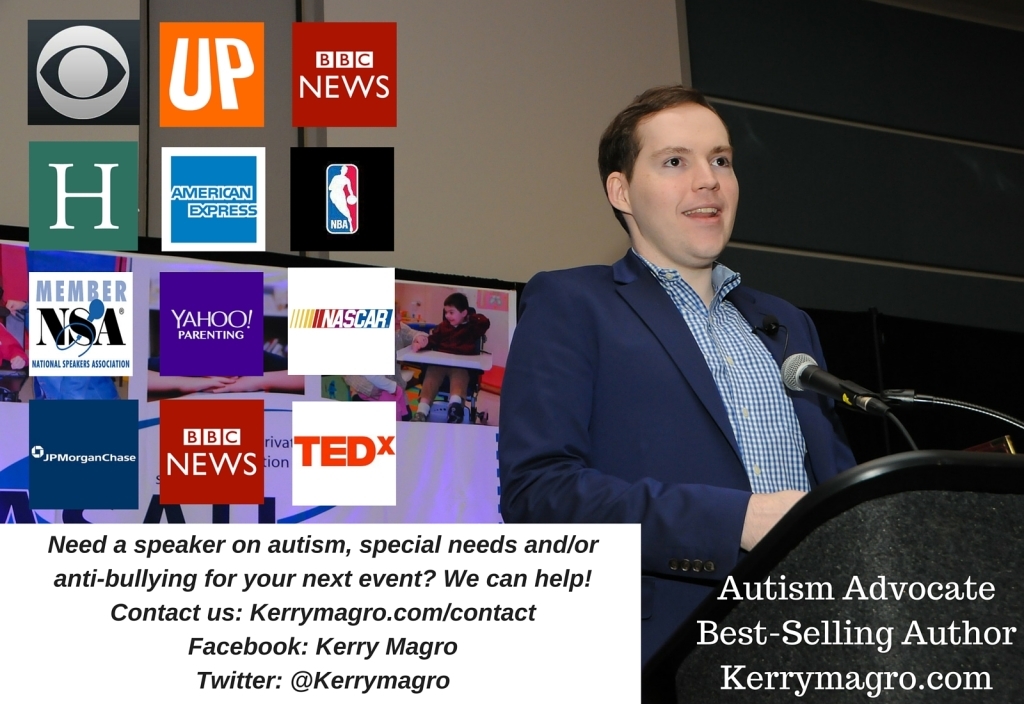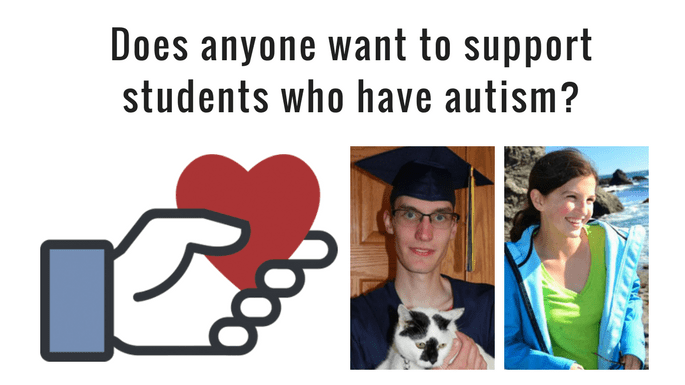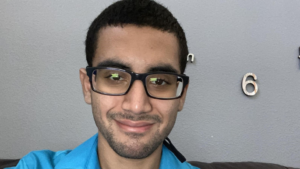This guest post is by Abigail Hickman, a young woman on the autism spectrum who was accepted into Columbia University and is studying political science and anthropology who hopes to become a writer and public speaker.. Abigail is applying for the Spring 2018 Making a Difference Autism Scholarship via the nonprofit KFM Making a Difference. You can read more about the organization and how to apply for our scholarship here. You can help our scholarship program continue to help these students by making a donation here (the majority of our scholarship program is ran through donors from our community such as yourself so no matter if you could donate anything, whether it be $5 anywhere up to $5,000 it would be making a difference!).
An open letter to all philanthropists,
Most people don’t know what the word “philanthropy” actually means. It comes from two Greek root words, “philos” and “anthro,” which when put together give philanthropy the very specific meaning of “love of humanity” or “love of all mankind.” It also, and crucially, implies a belief in the inherent good and better nature of humans.
I’ve always been interested with the particular meaning of words and names, even when so many people tend to overlook them. Because of this, I’m very particular with how I use (or don’t use) specific words like philanthropy or philanthropist. For instance, I would never use the word philanthropist to describe myself, not because I don’t love humanity or mankind, but because I do not have the unequivocal belief that humans are always good or always better. I don’t, as true philanthropists always do, put humanity on a pedestal. Like how every rose has its thorns, there is both good and bad in the neurotypical human experience. That’s why humanity is so fascinating to me and, in my experience, the envy of many other people on the spectrum.
I have noticed that autistic and other neurodivergent people are more likely to be philanthropists, even though they would swear they were nihilists or misanthropes. No, the reason why these people claim to hate life and humanity so much is the fact that they are philanthropists. These people believe humans are always good and that the typical human experience is without difficulty. Their love for humanity manifests itself as jealousy because like a boy who berates his crush when she doesn’t behave how he has imagined in his fantasies, these neurodivergent philanthropists envy humanity because they put it on a pedestal as an unachievable perfection.
It can be difficult to understand the philanthropy of a neurodivergent person, especially when one is a neurotypical. Neurotypical family and therapists say that autistic people shouldn’t feel entitled to friendship or love, which is true. Nobody should be forced to be your friend or lover. But the philanthropist response, one that I deeply understand and sympathize with, is that it can be difficult to not feel entitled to something that the rest of humanity seems to achieve so effortlessly. The neurotypicals respond that the philanthropists simply don’t understand, most of human friendship and love is transient and superficial. It doesn’t actually mean anything, so they shouldn’t assign any stock or meaning to it. The philanthropists respond that all love and friendship has stock and/or meaning when you’ve never been able to experience it before. This misunderstanding by neurotypicals and the inability of the neurodivergent to effectively communicate what they truly want, which is just understanding and reciprocal relationships, leads to these philanthropists becoming ever more isolated and their jealousy to brew until it causes them to shrink into isolation or explode in a fury of violence.
So, let me, a fellow neurodivergent and past philanthropist, write this to all of those suffering from philanthropy: I get it. I mean it, I really do. Humans and neurotypicals seem like they have it all made. They get girlfriends and boyfriends who tell them “I love you.” Even though you and I know that in many cases people don’t say “I love you” in a sincere way, there’s still something special about hearing a phrase like that directed at you from someone who isn’t your family. Similarly, it can be hard to spend nights at home when you know your neurotypical acquaintance or sibling is out with their friends at an event or party, even when you know that your sibling doesn’t have what you desire in any friendship, openness and the ability to be comfortable around others.
You know that you ascribe more pleasure and happiness in the typical human experience than there really is, but by putting humanity on a pedestal you create a dream, a cure if you well, that you could one day achieve which would eliminate all of your anxieties, struggles, and depressions. But listen to what I’m telling you now: no human or species is perfect and no dream ever comes about as it was imagined. And by imagining what could be, you fail to see the beauty in what is. By thinking of all of the romantic conquests you could have if you were neurotypical but which you are denied, you fail to know that any romantic relationship you have will be deep, passionate, and genuine. By imagining all of the parties you could be going to with your “squad,” you fail to recognize that partying and huge friend groups may not be what you want. Maybe what you truly want is a handful of people who you hold close and who don’t care who you are or want to be. There is beauty in who you are just like there is, I’ll admit, pain. But unless the bad is taken, the good can never be uncovered and savored.
So, dear philanthropists, I encourage you to give up on your philanthropy. When I decided I was going to be who I wanted to be instead of what I imagined I should be, I found a happiness I never thought possible, a happiness I hope you have the courage to seek within yourself.
Yours truly,
Abigail Hickman
A former philanthropist, now autophile (one who loves themself for who they are)

Kerry Magro, a professional speaker and best-selling author who is also on the autism spectrum started the nonprofit KFM Making a Difference in 2011 to help students with autism receive scholarship aid to pursue a post-secondary education. Help us continue to help students with autism go to college by making a tax-deductible donation to our nonprofit here. Also, consider having Kerry, one of the only professionally accredited speakers on the spectrum in the country, speak at your next event by sending him an inquiry here.

We’d also appreciate if you could start a Facebook Fundraiser to support our nonprofit’s scholarship fund! You can learn more about how you can do just that here.














